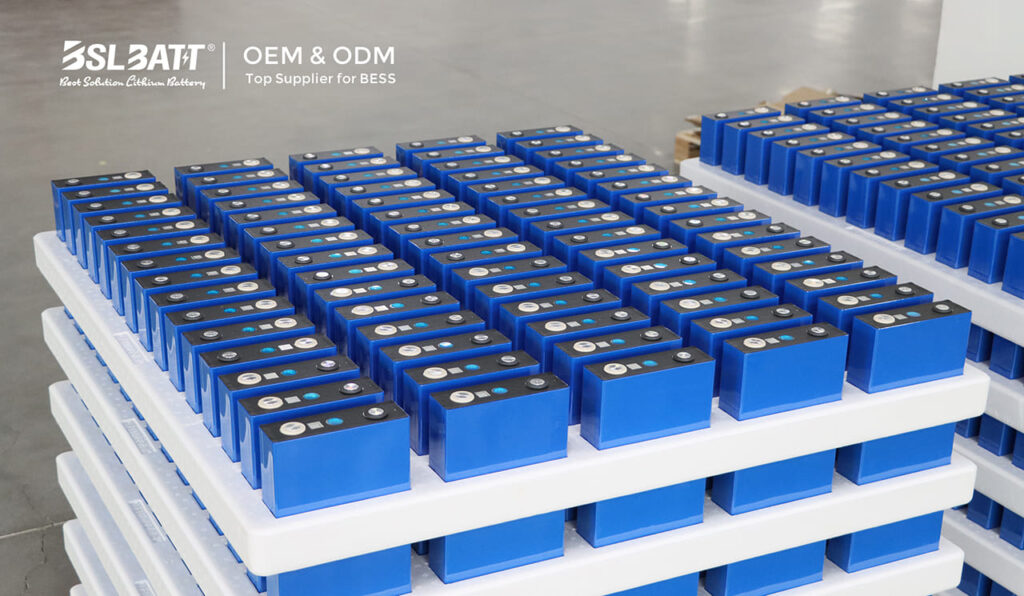With the progress of battery technology, lithium batteries have gradually replaced the status of lead-acid batteries into the hearts of the public, in material handling, renewable energy storage, electric vehicles and other areas of application and play an excellent. However, most consumers still have a lot of questions about lithium batteries, such as how long is the life of lithium batteries.
In this article, we will investigate the life of lithium batteries, and in-depth discussion, to tell you whether lithium batteries are worth investing in.
What Is A Lithium ion Battery?
A lithium battery is a type of battery that uses lithium ions to move between the positive and negative electrodes to store and release electrical energy. It usually consists of a positive electrode, a negative electrode, an electrolyte and a diaphragm. The positive electrode material can be a compound such as lithium cobaltate, lithium iron phosphate, or lithium nickel cobalt manganate, while the negative electrode is commonly made of materials such as graphite or silicon. The electrolyte can be a liquid organic solution or a polymer electrolyte. Lithium batteries can be categorized into types such as lithium iron phosphate, lithium ternary, lithium cobaltate, and lithium manganate depending on the cathode material.

Compared with other types of battery technology, Li-ion batteries are characterized by higher specific energy, higher energy density, higher energy efficiency, longer cycle life and longer service life. Based on their advantages, Li-ion batteries are now widely used in a variety of fields ranging from cell phone batteries to stationary energy storage.
Lithium Battery Cycle Definition
The cycle of a lithium battery represents the number of times it can be used, usually we refer to a charge and a discharge as a lithium battery cycle, the cycle definition is often used to explain whether the lithium battery has enough value for investment.
How Long Do Lithium-ion Batteries Last?
According to the data documented by Wikipedia, the average lifespan of a lithium-ion battery is in the range of 300-500 cycles, but this is not the final figure. The cycle life varies depending on the type of Li-ion battery, the most popular being LiFePO4.

LiFePO4 (Lithium Iron Phosphate or LFP) batteries are a type of lithium-ion battery that has a longer cycle life and is more stable at high temperatures and is becoming increasingly popular in the solar energy storage and electric vehicle industries. LiFePO4 stands out in terms of cycle life compared to other Li-ion batteries, typically reaching over 3,000 cycles, making it more cost-effective from an investment standpoint.
BSLBATT provides the best lithium battery solutions and all of them are based on LiFePO4 as the core of the battery, using the products of EVE and REPT, the world’s top three Li-ion battery manufacturers, with a cycle life of typically over 6,000 cycles and a service life of up to 15-20 years, making them a perfect alternative to lead-acid batteries.
Factors Affecting The Life of Lithium-ion Batteries
The life of lithium batteries is not static, but can be affected by several factors, after my summary, there are usually the following influencing factors:
Extreme Temperature
For example, the normal operating temperature of a LiFePO4 battery is usually 0~55℃ for charging and -20~60℃ for discharging. Extreme high temperatures usually reduce the service life of Li-ion batteries greatly, while extremely low temperatures also reduce the performance of Li-ion batteries.
Overcharging and Over-discharging
Whether it is lithium battery or lead-acid battery, frequent over-charging and over-discharging is very fatal to the battery life. But the good thing is that lithium batteries have their BMS, within the program set up in advance, can provide protection when the battery is over-charged or over-discharged, greatly extending the service life of lithium batteries.
Storage Temperature and Environment
The storage temperature of LiFePO4 is usually recommended to be 0℃~25℃, which means you should store the LiPo battery in a cool and dry environment. However, it should be noted that lithium batteries have a self-discharge rate of less than 3% per month, so please do not leave your battery unattended and keep it with more than 40% capacity as much as possible.
High Rate Charging
We usually do not recommend rapid charging of Li-ion batteries because high rate charging can overheat the battery and also affect the life of the Li-ion battery. For example, for lithium solar batteries manufactured by BSLBATT, our BMS is usually set to a maximum charge rate of 1C, which if exceeded will not only reduce the life of the battery, but may also damage the BMS.

Working Humidity
Excessive humidity in the working environment will cause the battery to be prone to short-circuiting or bulging, corrosion of the lugs, etc., which will also affect the life of the battery. If the temperature difference in the working environment is large, it will also cause condensation inside the lithium battery, which will also cause a short circuit and affect the battery life.
Ways to Extend The Life of Lithium-ion Batteries
- Carefully read the lithium battery specifications and instructions: usually before we use lithium batteries, we should carefully read the lithium battery specifications and instructions, as far as possible, in strict accordance with the requirements of the lithium battery manufacturers and suppliers to use our lithium batteries.
- Use the right charger: When charging Li-ion batteries, choose a charger with the same voltage range as our Li-ion batteries, and it is best to use the charger provided or specified by the manufacturer for charging.
- Store your lithium battery in the right temperature: If your Li-ion battery is not used for a long time, please place it in the right storage temperature, usually 5℃ – 20℃, and make sure it is cool and dry. Remember not to leave your lithium battery unattended forever, and to replenish the battery at least every 3 months.
- Avoid complete discharge: Ensure 20-90% charge as much as possible when using, frequent deep discharge will greatly reduce the service life of lithium battery.
- Reduce the use of fast charging devices: Although fast charging can save time and improve work efficiency, it will also increase the probability of overcharging.
- Avoid Physical Damage: Protect your lithium battery to minimize external impacts and avoid physical damage.
Is Lithium-ion Battery Worth Investing?
Lithium batteries are the most popular storage batteries in the market today, and will gradually replace lead-acid batteries in the market as technology develops and raw material costs decrease. Because of its long life, environmental protection, high energy density and other characteristics, lithium batteries are widely used in solar energy storage, starter batteries, telecom base stations, material handling, low-speed power vehicles such as golf carts, sightseeing cars, cleaning cars and many other fields.
Therefore, as a professional battery manufacturer for more than 20 years, we believe that the future of lithium batteries is bright, and will be as common as lead-acid batteries in people’s lives, as well as an important participant in the global low-carbon goals.



